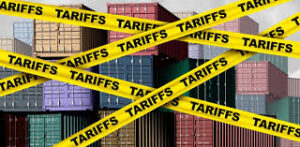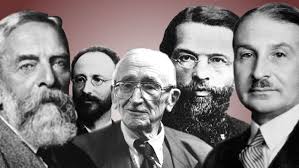Was Yesterday “Liberation Day”?
Trump has been talking about tariffs for a long time – at least since he ran for president in 2016. He talked more aggressively about them on the campaign trail in 2024.
So if he does what he said he was going to do – and he’s so far had an unusual fidelity to last year’s campaign promises – the US economy, and that of the entire world, will be different by the end of this year. Possibly greatly different. Whether that will be good for Americans and our trading partners is yet to be seen. But it should be a wild ride.

No, I’m Not an Expert on Global Trade Theory
I was late to taking a serious interest in economics. As a high school and college student, I was seduced by second-hand Marxist theory. In protesting against the Vietnam War, I was also (I thought) protesting the evils of Capitalism.
My views began to change when I got married and had a family. Making enough money to take care of my own was a serious obligation. I took it seriously and put my Marxist views away.
In 1982, after accepting a job as editor-in-chief for a company that published business newsletters, I began to read in some depth about how companies thrive and survive in a free market economy.
When, several years later, we began publishing investment newsletters, I was exposed to the realities of the real economy. I could no longer hold any of my former Marxist views, although I maintained the humane sentiments that I always believed were the moral bedrock of Socialist theory.
And then later, when I decided to “get rich” and began starting and owning businesses, any vestigial inclination to government control of the economy disappeared completely.
But I Have Read Hayek, von Mises, and Friedman!

I began my formal education in the early 1990s by consuming the works of Friedrich Hayek, Ludwig von Mises, and other prominent thinkers of the Austrian School of Economics.
But it wasn’t until recently that I exposed myself to Milton Friedman. I devoured his essays and watched videos of his speeches and debates, and I loved everything he said.
Friedman’s logic was simple and compelling: Tariffs (or import quotas) raise prices for consumers, waste resources, and ultimately cost more than they benefit.
In one famous critique, he argued that it’s “utter nonsense” to insist on reciprocal tariffs – after all, “exports are the cost of trade, imports the return from trade, not the other way around.”
In his view, even if other countries protect their markets, the wise course for America is to move unilaterally toward free trade, rather than “adding insult to injury” by imposing its own restrictions. This free-trade idealism became part of my DNA. I believed that free trade benefits all economies in the long run and that any form of protectionism was a step backward.
So when Donald Trump burst onto the scene with a tariff-centric trade strategy, it clashed with everything I thought I knew. I had long equated tariffs with economic self-harm. To me, his aggressive stance on trade felt like watching someone light a match near a powder keg. As a faithful Friedmanite, I was skeptical from the start.
In this issue, I give you the history – or perhaps I should say the evolution – of my thinking about Trump’s tariff plans since he was elected last November. I’ll tell you what the traditional thinking is and what the new thinking is, and how they are probably both wrong. At least to some degree.
Many people – perfectly smart and well-educated people – think that trade policy, including tariffs, is an obscure, academic subject that doesn’t rate in importance compared to… say… discrimination, social justice, and crime.
If you feel that way now, I hope you’ll continue reading so you can decide for yourself what this means.
